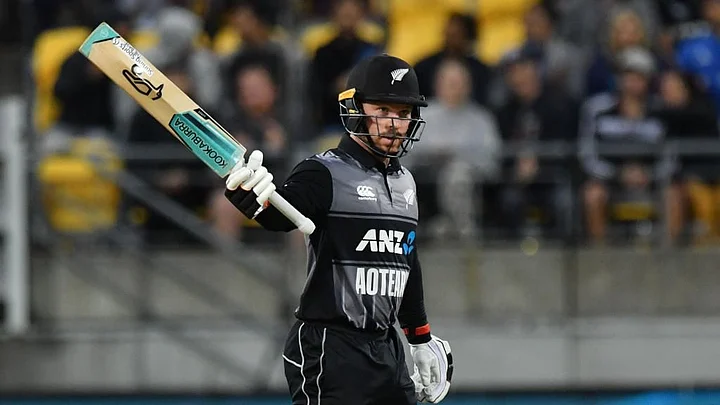A below-par India slumped to their worst-ever defeat in T20 international as New Zealand registered a thumping 80-run win in the opening game of the three-match series at Wellington on Wednesday, 6 February.
Rohit Sharma suffered only a second loss in 13 T20Is as captain as he saw his somewhat experimental XI be outplayed in all departments by the hosts.
Having been asked to bat, New Zealand were powered by Tim Seifert’s 43-ball 84 as they posted a commanding total of 219/6.
The Kiwi bowlers then put in an exceptional shift to bowl India out for 139 in 19.2 overs, handing the visitors their biggest defeat in terms of runs in the format.
The statistical highlights from the first T20I between India and New Zealand at Wellington:
In 16 previous losses while chasing in T20Is, India’s highest margin of defeat had been 49 runs. But that figure was easily eclipsed by their comprehensive breakdown at the Westpac Stadium.
While the Black Caps had their bowlers to thank for stifling the formidable Indian lineup, the bulk of the damage damage had been done by their batsmen in the first half.
Unheralded keeper-batsman Seifert, playing only his ninth T20I, was the unexpected star of the show from the top of the order, launching into the Indian attack with a stroke-filled innings featuring seven fours and six sixes.
The 24-year-old’s exploits saw him surpass Brendon McCullum’s record for the highest score by a designated keeper in T20 internationals in New Zealand.
Seifert shared an 86-run opening partnership with Colin Munro, who hit 34 off 20 balls himself. The duo’s stand came in just 8.2 overs, providing the perfect launch-pad for the rest of the Kiwi batsmen.
It was also the second-highest association for any wicket in T20Is played at Wellington’s Westpac Stadium.
India now find their task cut out for the remainder of the series. Having never won a T20I in New Zealand, Rohit Sharma’s side will now need victories in both the remaining games, at Auckland and Hamilton, to preserve their proud unbeaten streak in the format since 2017.
(With statistical inputs from Arun Gopalakrishnan)
(At The Quint, we question everything. Play an active role in shaping our journalism by becoming a member today.)
